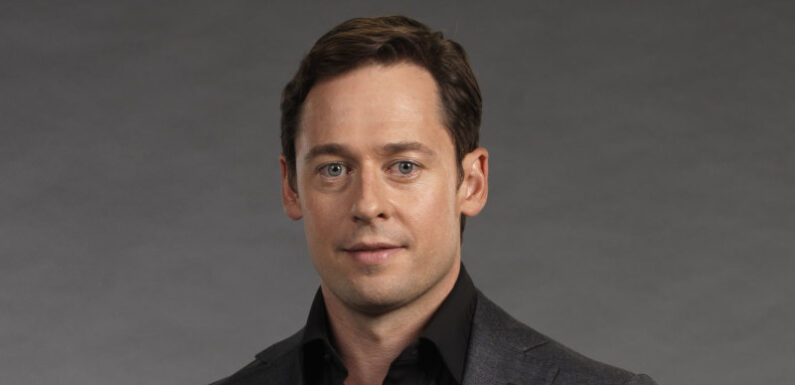
Save articles for later
Add articles to your saved list and come back to them any time.
Persistence. Tenacity. Commitment.
These qualities are increasingly rare among journalists in this austere age of media where websites are becoming hungrier and hungrier.
The journalistic offering of some publications consists of little more than the ephemeral. Speed is the attribute most treasured. The ability to spot trends is prized. A snappy headline and tantalising picture trumps all.
Walkley Award winners Michael Bachelard and Nick McKenzie breathe public interest journalism.Credit: Simon Schluter; Wolter Peeters
Such things are undoubtedly important in a modern newsroom. In times of crisis, readers expect accurate information delivered quickly and accurately. And presenting our work in an appealing manner is essential to make sure it finds the intended audience.
Dedication to a story over a long period of time, however, is now an undervalued virtue in the considerations of many metric-driven editors seeking their next sugar hit. Not so at The Age, where the ability to carefully craft and follow a story over weeks, months or even years is prized as a key point of difference from our competitors.
Resisting the temptation to jettison a story and pursue the topic du jour often delivers clear public interest benefits. When the noise subsides and the spotlight moves to the next exciting topic, there is inevitably something left behind in the darkness.
Let me give you an example. This story, about a scathing report to government that exposes the mismanagement of hundreds of millions of taxpayer dollars squandered through the offshore asylum seeker processing system, was possibly the most important thing published by any Australian media outlet on Wednesday. It raises further questions about the management of the influential Home Affairs Department over several years under the Coalition, and whether the current Labor government will make the tough decisions required to clean up the messes exposed by The Age’s Nick McKenzie, Michael Bachelard and 60 Minutes′ Amelia Ballinger throughout the course of the year.
This story did not come out of thin air. And it certainly didn’t come to us in a press release. Home Affairs Minister Clare O’Neil has still not committed to releasing the report, which was commissioned in response to The Age and 60 Minutes’ Home Truths investigation.
This piece of journalism was the latest instalment in an enormous body of work from these journalists that has exposed widespread rorting and human trafficking in Australia’s visa system, revealed poor practices in the Home Affairs department and concerns that Australian taxpayer money was being used to bribe foreign officials, and brought to light a cache of messages showing one of the nation’s most powerful public servants attempting to promote conservative politicians, oust enemies and revamp the country’s national security regime. This body of work began more than a year ago, when McKenzie first reported on a global human trafficking syndicate taking advantage of flaws in Australia’s visa system to import and exploit foreign women as illegal sex workers.
Reporters such as Bachelard and McKenzie are experienced enough to know that patience as a reporter pays off. They inhale a sense of justice and exhale public interest reporting. And while it’s not the reason they do this work, their respective trophy cabinets reflect their dedication. Between them, they have almost 20 Walkley awards, the highest honour in Australian journalism. They are both hoping to increase that tally next week.
Few can match their tenacity. I have seen McKenzie remain resolute in the face of the most immense public scrutiny and attacks on his work, only to be vindicated years later by a judge’s ruling (currently on appeal) that Ben Roberts-Smith, who McKenzie first wrote about in 2017, was indeed a war criminal.
But McKenzie didn’t stop there. On the day the judgement was handed down, he was already prepared with another tranche of public interest reporting on Roberts-Smith that we published over the following days. Stories like this one, this one and this one may never have seen the light of day had the judge come to a different conclusion. McKenzie wrote them anyway. Dedication.
Nick McKenzie speaks to the media after the verdict was handed down in the Ben Roberts-Smith defamation case.Credit: Janie Barrett
Bachelard, a former foreign correspondent who as an editor took carriage of the vast majority of McKenzie’s reporting on the war crimes of Australian soldiers, is one of the most fearless journalists I’ve worked with. He will tackle any topic and venture into any danger zone with all the confidence of a person guided by an indestructible moral compass, a clear sense of his duty as a reporter and an unwavering belief in the importance of a journalist’s role in society.
McKenzie and Bachelard aren’t the only journalists in our newsroom who have demonstrated their persistence. I wrote recently about the acknowledgement of Royce Millar, Ben Schneiders and Clay Lucas for their role in the lengthiest and most costly investigation in the history of Victoria’s anti-corruption watchdog. Sophie Aubrey and Lucas also showed great dedication in their reporting on the Maribyrnong River floods earlier this year, reporting that led to the establishment of a parliamentary inquiry. Their series has also been nominated for a Walkley award.
Persistence is a virtue admired by you, our subscribers, who in these fast-moving times keep reminding us how much value you find in our slow-cooked journalism. It’s not easy and it’s not cheap to produce, but it matters.
McKenzie, Bachelard and their colleagues don’t follow stories for months and years in order to win awards. They do it because they don’t know any other way. The bug bites them and they can’t stop until the story is resolved. Sometimes, they probably wish they could move on. But the fact they are incapable of doing so is a good thing if you’re a subscriber to The Age. And it’s a good thing for Australian journalism.
Most Viewed in National
From our partners
Source: Read Full Article

